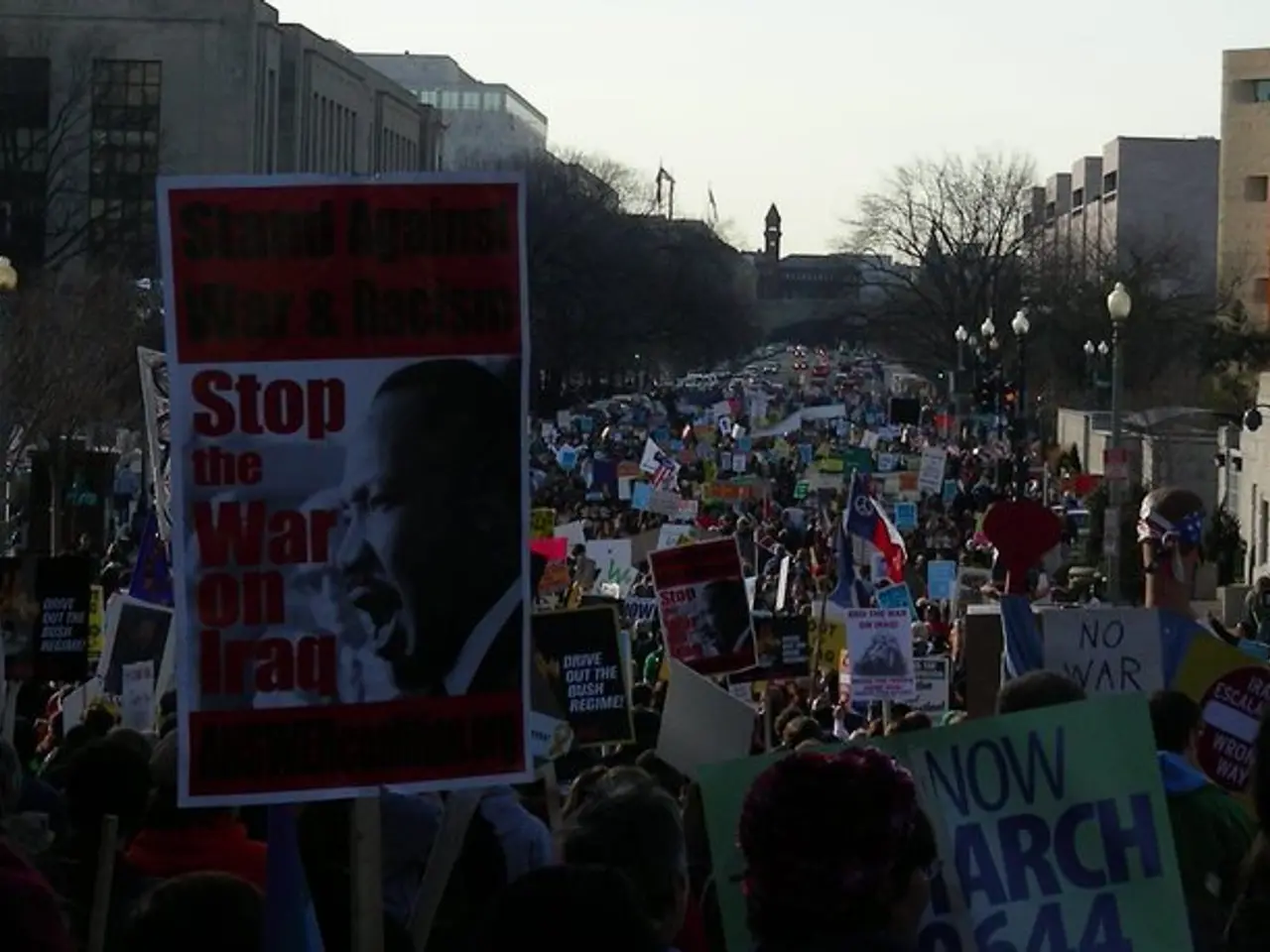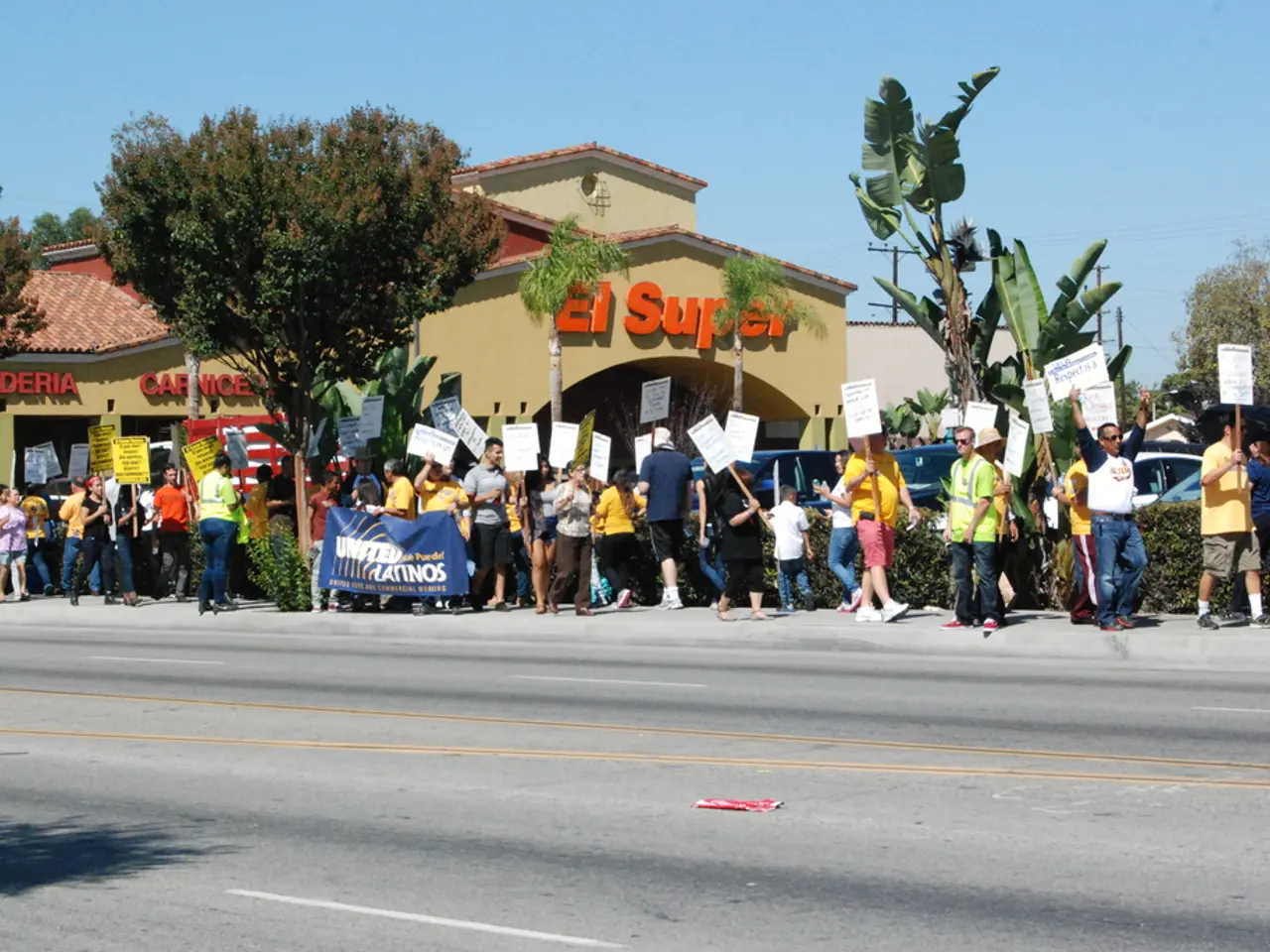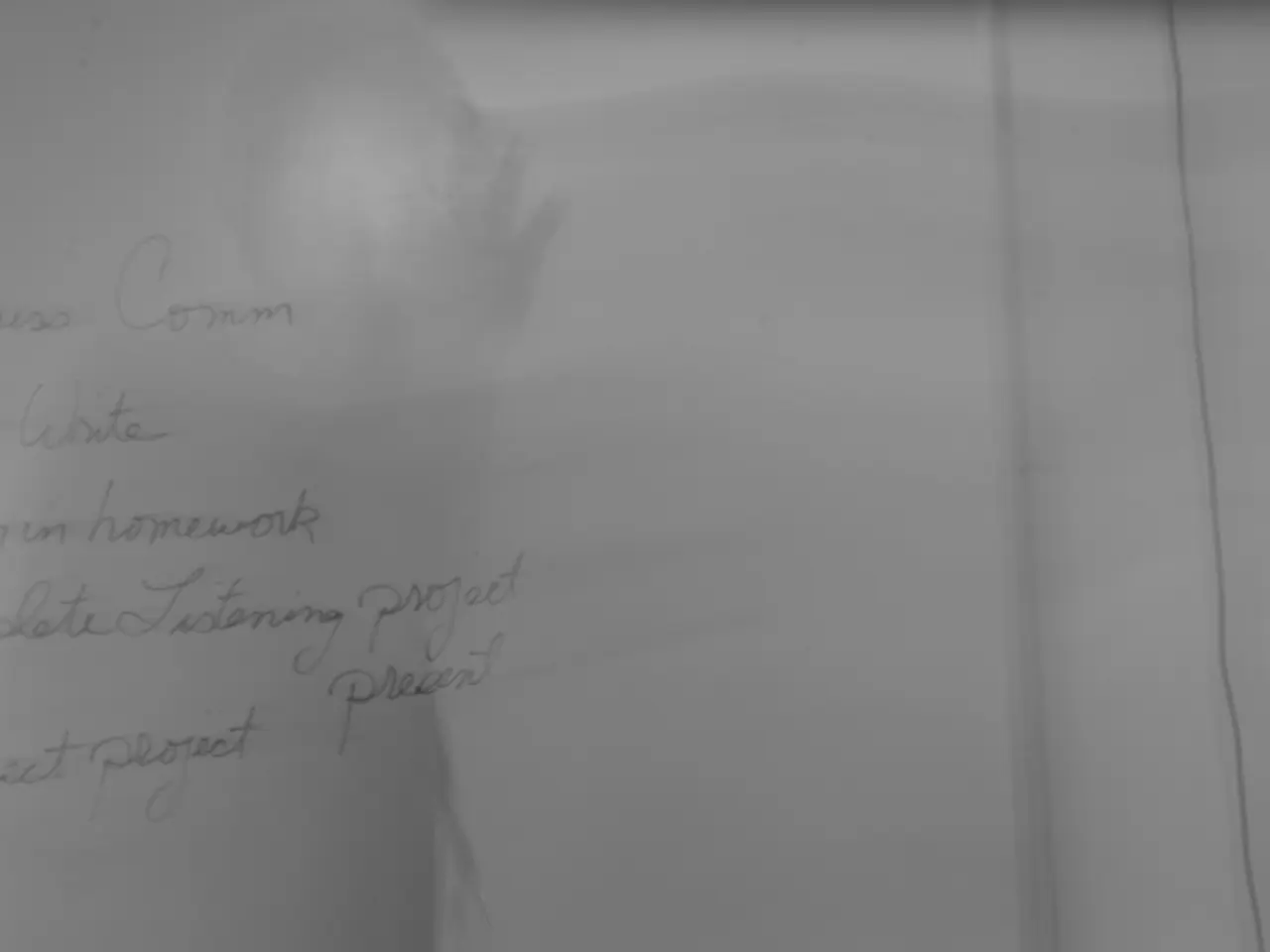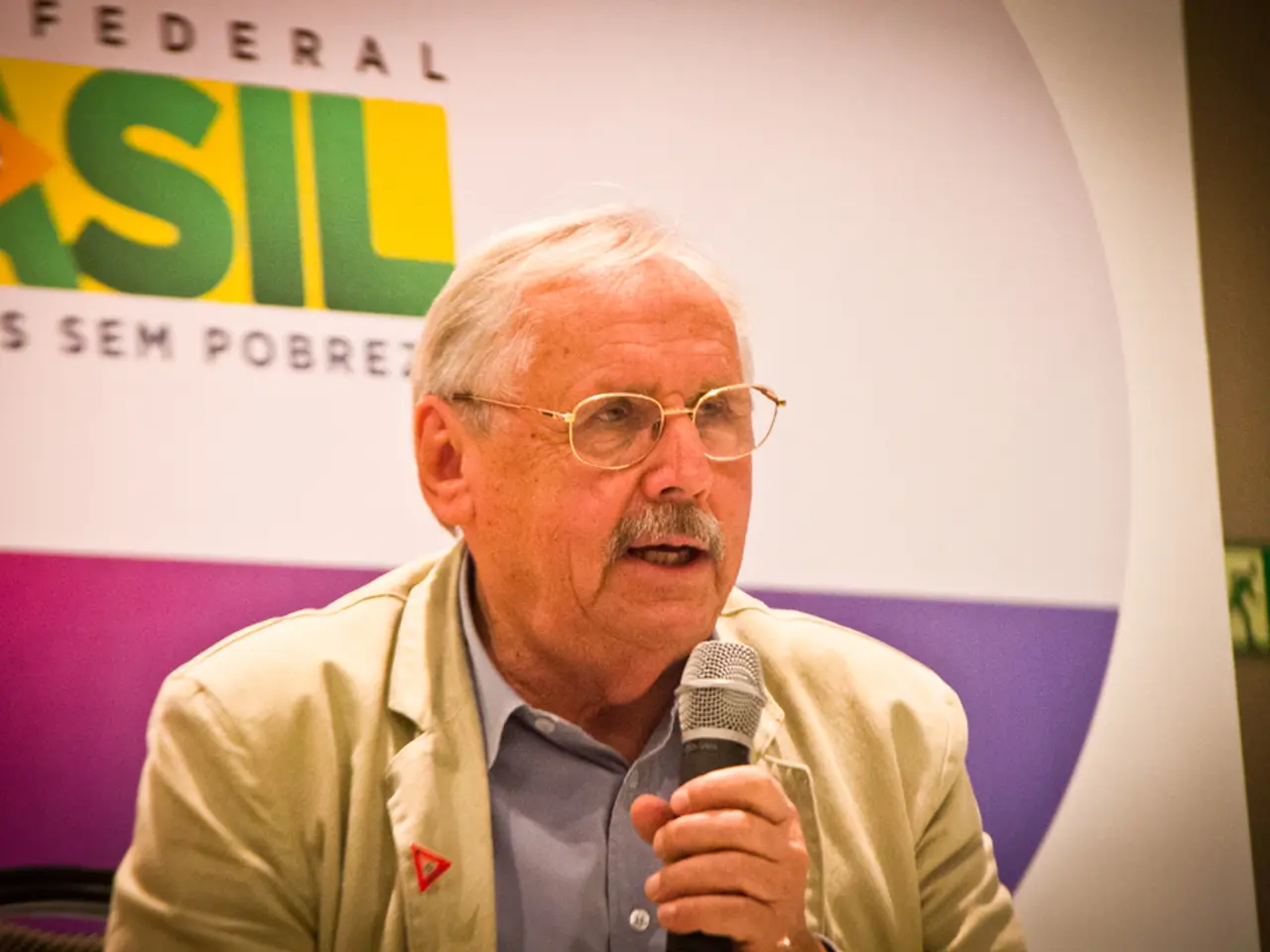Encourages humanitarian assistance to Gaza via ground transportation
In a two-day trip to Israel and the Palestinian territories, German Foreign Minister Johann Wadephul has emphasised the urgent need for action to alleviate the suffering in the Gaza Strip.
Wadephul's visit, which includes meetings with Israeli officials such as Gideon Saar, Benjamin Netanyahu, and Izchak Herzog, focuses on finding ways to end the nearly two-year-long war and improving the humanitarian situation in Gaza.
The foreign minister has expressed his concern over the dire conditions in the Gaza Strip, stating that the dying and suffering there has reached unimaginable proportions. He has urged Israel to open border crossings into the Gaza Strip to allow humanitarian aid to reach the people in sufficient quantities.
The situation in Gaza remains highly fluid and complex, with aid delivery efforts constrained by security and political considerations. Current proposals and efforts to improve the humanitarian situation focus on reopening border crossings like Kerem Shalom and Rafah to facilitate aid delivery and partially easing the blockade.
However, these measures remain highly constrained and controversial. The Israeli government has allowed very limited entry of humanitarian trucks through Kerem Shalom, but this is far below what is needed to sustain essential services like health, clean water, and aid delivery in Gaza.
Humanitarian organisations like the International Rescue Committee continue to deliver critical services despite severe fuel shortages and the blockade. They also pre-position supplies outside Gaza to be ready to scale up aid when access improves.
Tactical pauses and airdrops by Israel intended to provide aid are widely considered insufficient, costly, inefficient, and dangerous. International agencies consistently press for greater access and fuel deliveries, warning that the prolonged blockade and current restrictions have caused a deepening hunger crisis and increased acute malnutrition among children in Gaza.
Some political proposals involve relocating Palestinians from Gaza, which raises serious ethical and legal concerns. These proposals aim to reduce the civilian population through displacement or resettlement, but are viewed by many observers as potential ethnic cleansing rather than humanitarian measures.
Political agreements involving Israel, the U.S., and Egypt have been referenced recently, calling attention to the humanitarian crisis in Gaza. However, concrete details of new border opening proposals or expanded aid corridors remain limited or undisclosed publicly.
The SPD deputy parliamentary group leader, Siemtje Möller, has spoken of "real pressure" to end the suffering in the Gaza Strip. The co-chair of the Greens, Franziska Brantner, expects Wadephul to "push with all his might" for humanitarian aid to the Gaza Strip, the release of hostages, and a political process to end the war.
In addition to the focus on Gaza, Wadephul also plans to meet with representatives of the Palestinian Authority in Ramallah in the West Bank on Friday. Germany will continue to support Israel in ensuring that the Islamist Hamas releases hostages, disarms, and has no more political influence in the Palestinian territories.
However, the German government is keeping the option of sanctions open and may support such measures depending on the results of Wadephul's trip. Unlike France and Britain, Germany is not currently considering recognising a Palestinian state. The SPD has called for more pressure on the Israeli government to allow more aid to be brought in via land to the suffering people in the Gaza Strip. Wadephul has warned Israel against further escalation and mentioned that Germany will react to unilateral steps.
- The German Foreign Minister, Johann Wadephul, during his visit to Israel and the Palestinian territories, is focusing on finding ways to end the ongoing war and improve the humanitarian situation in Gaza, which can be considered a political issue within the context of general news and war-and-conflicts.
- Amidst the urgency to alleviate the suffering in the Gaza Strip, Wadephul has spoken of "real pressure" to end the crisis, emphasizing the need for action, which is a matter of international politics and general news.





